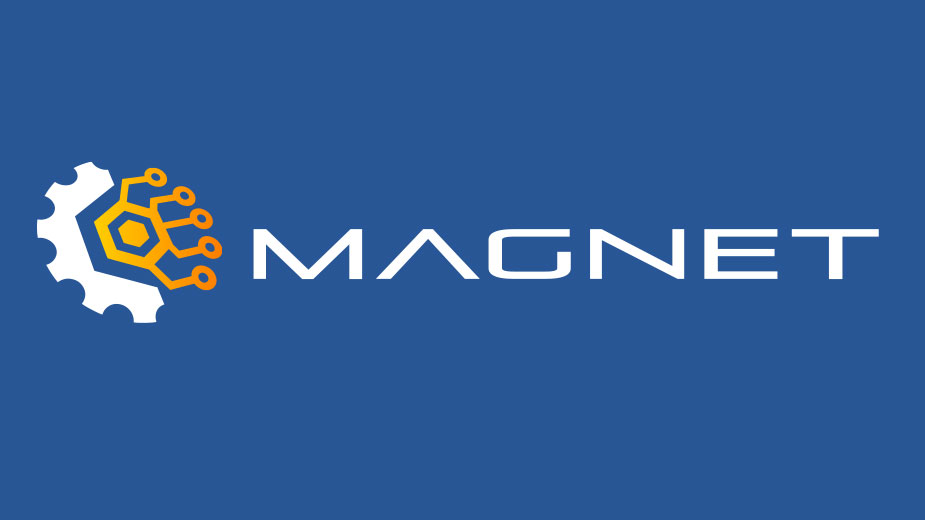By Douglas J. Guth
CLEVELAND – A Cleveland-based industry advocacy group is helping the Mahoning Valley’s manufacturing community tout its strengths across the state and beyond.
The Manufacturing Advocacy and Growth Network (Magnet) is working with Valley executives and nonprofits to expand their businesses, says Mike O’Donnell, vice president of operations for the organization.
Magnet is focusing on robust technology adoption, as well as talent attraction and retention.
Manufacturers must be progressive about implementing robotics, automation and other so-called Industry 4.0 innovations, O’Donnell says.

“People [in the Valley] have roots in this area,” he says. “There is a labor pool here that you don’t have in cities such as Cleveland and Akron. But you also don’t just want to make steel forever.”
While the Mahoning Valley has long since transitioned to high-tech sectors such as 3D printing in industrial production and electric vehicles, it also has a solid middle-tier manufacturing base of machine shops, fabricators and extruders.
Legacy companies of all stripes must continue to accept new production methods to remain competitive, says Ethan Karp, president and CEO of Magnet.
“There are a lot of small to medium-sized businesses in the area, but not many giant companies. So the burden on smaller companies is putting risk and capital into innovating,” Karp says. “It’s a risk but also an opportunity.”
NEW GENERATION
Darlyn McDermott, director of client engagement with Magnet, has a direct view of the Mahoning Valley’s manufacturing landscape. McDermott, a resident of the area, connects local CEOs to supply chain assistance as well as leadership training and navigation of plant layout and assembly line efficiencies.
“We also work with employees on issues with burnout, doing a deep dive on the culture while helping businesses identify triggers,” he says.
McDermott and Magnet are not alone in these endeavors; they collaborate with incubators and chambers of commerce to bring new resources and programming to the Valley.

Through a partnership with the Mahoning Valley Manufacturers Coalition – a group that encompasses businesses, career centers and educational institutions – they support the proliferation of “lighthouses,” or enterprises willing to showcase their knowledge to others in the region.
“These companies can work with manufacturers not just on the technology side, but on the people side,” says Magnet’s O’Donnell. “We’ll introduce them to each other and say, ‘Let’s get you some technology training.’ ”
M7 Technologies in Youngstown is among the producers reaping the benefits of Magnet’s intervention, says the company’s operations manager, Morgan Linger. The company, which makes and repairs components for the steel, transportation and power generation industries, is always on the hunt for skilled labor. It’s a common problem that is made worse by rising post-COVID demand.
“Our customers increased production while the whole manufacturing sector had to play catch-up,” Linger says. “We’re always trying to onboard new talent to help with that.”
Toward that end, MVMC and Magnet teamed to develop student apprenticeship programs aimed at high school students. Through this effort, young preapprentices interested in machining or welding positions can transition to full-time apprenticeships after graduation.
Word of mouth is sufficient in attracting new participants, although Linger visits area high schools to burst lingering falsehoods that the industry is dark, dirty or dangerous.
In addition, M7 is working with Magnet to integrate Industry 4.0 initiatives into its processes – a landscape that also comprises collaborative robots and advanced CNC machining. Although tech adoption at M7 remains in research and development, Linger forecasts a future where employees are trained to work in automated work cells.
“We know that’s the direction manufacturing is moving in,” Linger says. “It also seems to be what excites the younger generation. When we bring in younger people to see robots and 3D printers, you can see their interest flare. That’s where manufacturing is heading. So we want to be on the front end.”
HALTEC ADVANCED TECHNOLOGY
Tire valve industry leader Haltec Corp. makes about 30 core products at its Salem plant, including lug nuts, gauges and other aspects of tire-rim assembly. Advancing technology has also allowed the company to develop automated inflation systems for everything from truck tires to footballs.
Haltec, named a “vendor of excellence” by construction equipment manufacturer Caterpillar, has doubled its sales in the last five years thanks to a focus on profit-driven solutions and improved efficiencies, says its director of strategic marketing, Adam Smith. A partnership with Magnet, meanwhile, brought grant dollars for lean manufacturing projects that maximized productivity while minimizing waste.
Automation has been a watchword at Haltec, particularly use of a valve assembly machine for parts previously produced entirely by hand. Although handcrafting is still central to operations, technology is key to production improvements, Smith says.
“We are an innovative company always trying to provide innovative solutions so it’s exciting for us to get this done in a digital manner,” Smith says. “Investment in technology has shown leadership how we can be doing things in a more tech-savvy way, while also tapping into local resources.”
Advocacy groups like Magnet are vital to breaking stigmas around an industry often deemed “subpar,” Smith says. Haltec’s history with heavy hitters such as Goodyear and Penske can be its own magnet for residents seeking a new career, he believes.
“One of the things that draws good talent is the ability to put your stamp on projects worked on with the largest companies in the industry,” Smith says. “We offer direct access [to these companies], when people would not have that otherwise.”
Alex Hertzer, senior project manager of MVMC, is excited about the Valley’s future even as he sees room for improvement. Current outreach to high schools and adult education programs – with Magnet as a reliable partner – can be elevated by a plant similar to Magnet’s new headquarters in Cleveland’s Hough neighborhood, Hertzer says.
The organization’s new home opened last November in the renovated Margaret Ireland Elementary School. The 53,000-square-foot building, purchased in 2020 from the Cleveland Metropolitan School District, connects to training and jobs while increasing manufacturing innovation and providing Northeast Ohio factories with advanced technologies.
Hertzer envisions an inventive environment in Mahoning Valley – a powerful tech hub marked by smaller companies with the nimbleness to innovate quickly.
“For a company with 25 employees where the owner is the plant manager and head engineer, being able to integrate a robotics cell can pay huge dividends,” Hertzer says. “That’s what our organization and Magnet is there to do – to help SMBs figure out this ecosystem. Ultimately, we work for the companies.”
